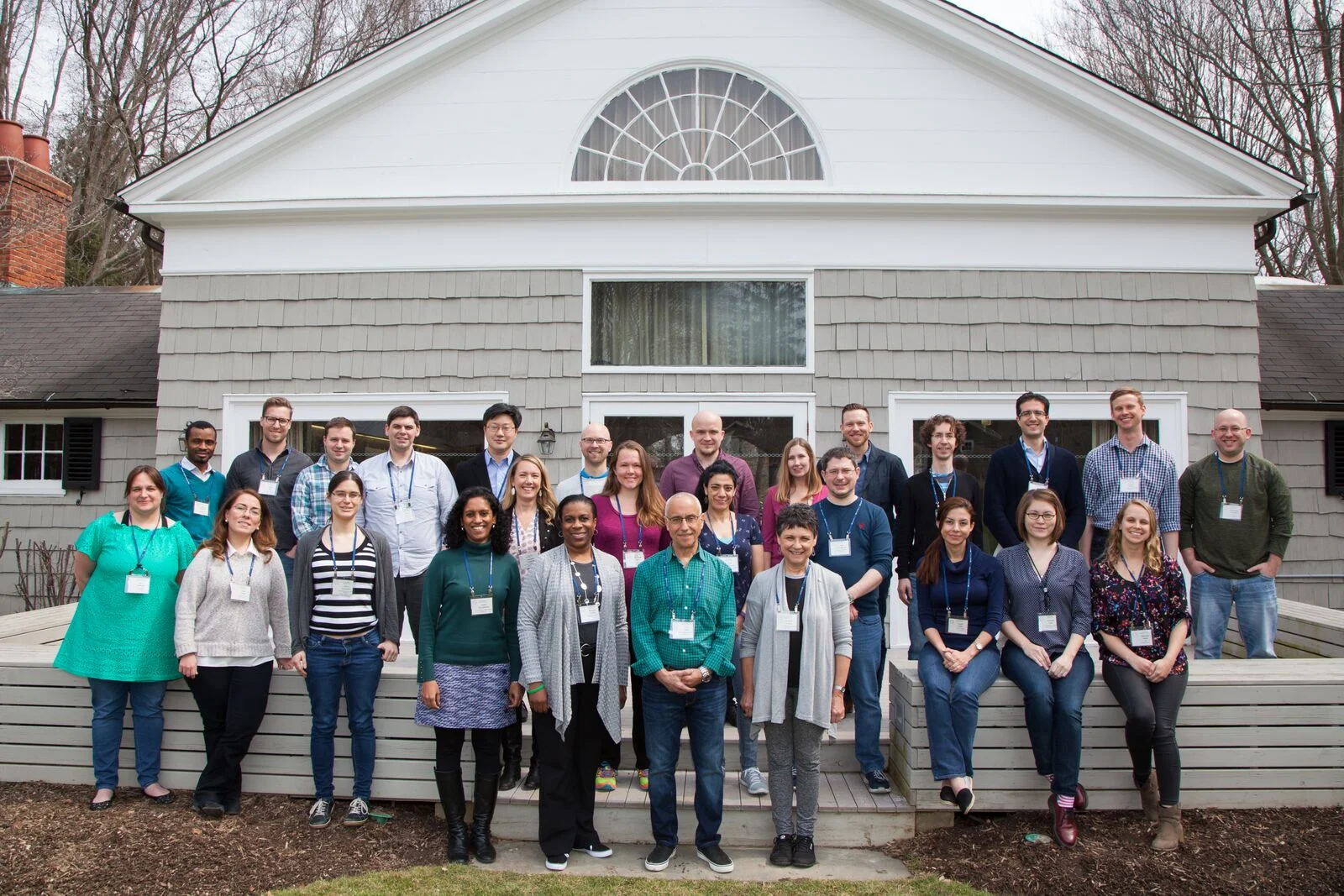Course instructors; Carl M. Cohen, Ph.D. and Suzanne L. Cohen, Ed.D.
Now entering its’ eighth year of training scientist-leaders, “Leadership in Bioscience” is a highly interactive three-and-a-half-day workshop (Friday afternoon through Monday afternoon) that provides a comprehensive introduction to the essential tools needed to manage a science research group or project team in both an academic and industry setting. Specifically targeted to those new to or about to take on a leadership role in science (new lab, new responsibilities) the workshop gives scientists a solid experience-based foundation in managing others, negotiating win/win outcomes, running effective meetings, selecting the best team members, setting goals and giving useful feedback. The workshop focuses on techniques, situations, and challenges that relate specifically to leading and managing in the scientific workplace. It emphasizes learning by doing and involves role playing, giving and receiving feedback, and group problem solving. Much of the learning will be peer-to-peer. Participants will be expected to discuss their own experiences and listen to others as they discuss theirs.
The workshop will help participants identify areas where they need guidance and growth, as well as how to capitalize on areas of strength. Participants will have the opportunity to share their experiences and challenges with others and to receive feedback and guidance from others with experience in leading scientists in a variety of settings.
In 2018 we are debuting a new workshop module: “Hiring and retaining your science team: Interviewing, selecting and orienting” that will show you how to staff your lab with the best possible team of scientists and keep them productive. Also new this year is an emphasis on defining and creating a lab culture that reflects shared values and promotes productivity.
Key focus areas of the workshop will include:
• Recognizing and understanding leadership in a science setting
• Using negotiation as a tool in scientific discussions and problem solving
• Identifying and resolving conflicts in the lab
• Dealing with difficult people and situations in a scientific setting
• Communicating your ideas and plans in a way that engages others
• Leading productive scientific team and project meetings
• Setting goals for and giving useful feedback to scientists
• Creating a positive lab culture
• Identifying, interviewing and hiring the best scientists for your team.
Applications due by January 31, 2018. Apply here.

